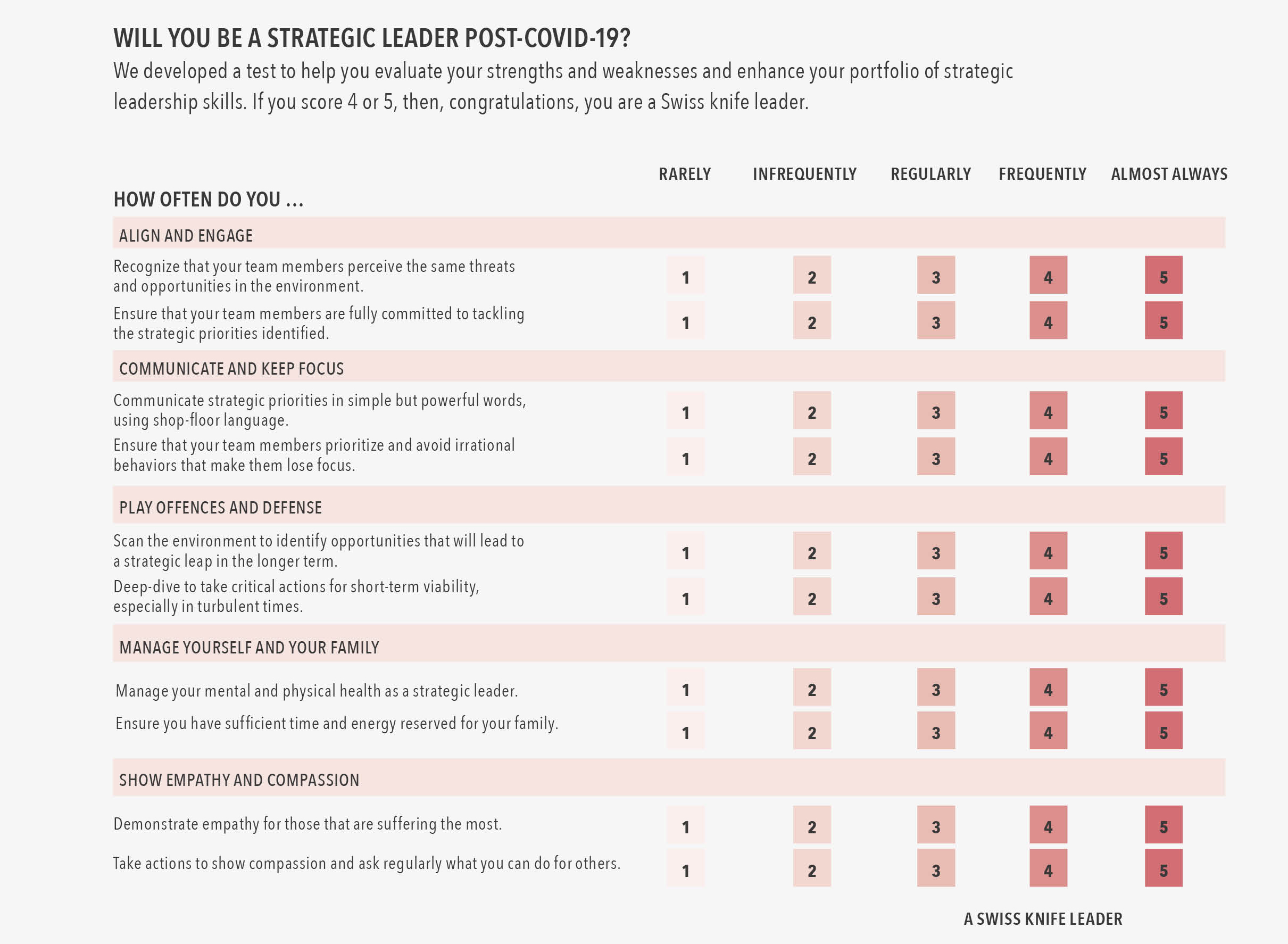Here are the responses and reflections we gathered from the over 100 executives who participated in the study:
How often do you manage yourself and your family?
Personal management will continue to be key as leaders adapt. Survey respondents showed a similar standing in relation to the need of (a) managing their mental and physical health and (b) ensuring they have sufficient time and energy for their families (average response: 3.22 versus 3.13). What was striking in the results we obtained is that roughly 30% of participants answered either “rarely” or “irregularly” to both statements. This reflects the challenges leaders face in today’s turbulent times to manage their health and dedicate sufficient time to their families.
How often do you show empathy and compassion?
When it comes to showing empathy and compassion, the executives surveyed reported a comparable inclination to show empathy for those that are suffering the most, and to take actions to show their accountability (average response: 3.66 versus 3.59). Around 40% of executives surveyed confirmed that they frequently showed empathy and compassion, although the results confirmed some variability, with only around 10% doing that irregularly. Being compassionate is a crucial trait of leadership, especially in times of crisis. Asking regularly what one can do for others is a critical trait of leadership, especially in the face of changing conditions.
One transport executive noted that they would “find new ways for a more effective dialogue/communication with the team and customers while smart working is increasingly adopted”. Another executive, who works in health services, predicted that “being a strategic leader post-COVID-19 will mean preventing, detecting, and taking care of the delayed psychological consequences of the collective and individual trauma of the pandemic, identifying the most fragile team members who don’t express their distress, and cultivating collective memory of what happened, what we did right and wrong, not in a ‘painful’ way, but to use it to better react next time.”
6 hidden traps in times of crisis
Building on academic literature on the topic, as well as our extensive research and interviews, we identified six hidden traps that unprepared leaders can fall into, especially in times of crisis.
1 Entrenchment syndrome: soldiers in the trenches losing their will or ability to fight.
2 Evaporating ethics: in the struggle to survive either redundancy or the collapse of business, what actions might desperate leaders resort to as base survival instincts kick in to save themselves and their businesses?
3 Our dominant characteristic prevails: how can we avoid either being too caring or too daring but modulate through agility?
4 The weakest could pay a heavy price: how as leaders can we bring people with us rather than throwing them to the wolves, particularly the most vulnerable?
5 Danger of toxic leaders: the type of leaders we need in a crisis are those who have high trust, even if they might not be the stars of high-performance delivery.
6 Loss of informal relationship building: how can we avoid or minimize the lack of informal human contact?







